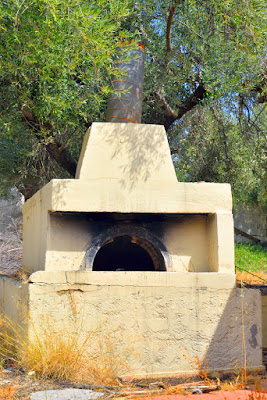3 Differences Between Residential and Commercial Kitchens
Restaurant kitchens operate quite differently than your kitchen at home. Restaurants produce mass amounts of food each day, and while you may have any army to feed at home, you likely don't need everything you'd find in a commercial kitchen. In today's blog, Fast Fix LLC discusses a few differences between your kitchen at home and the commercial kitchen at your favorite restaurant down the street.
One major difference between residential and commercial kitchens is that commercial kitchens are designed with functionality and workflow in mind. Often times a commercial kitchen staff will consist of several people working together to push out a large amount of orders in a little amount of time. In order for this team effort to be effective, the flow of the layout has to allow for efficient task completion. Residential kitchens do not require such functionality since generally you're not cooking for hundreds of people at home.
 2. Appliances
2. Appliances
The biggest difference between the two kitchen styles is the appliances. You'll find a lot of the same appliances in both kitchens such as an oven, microwave, blenders, mixing bowls, etc. Let's face it though, you can't serve 100 people in 20 minutes by preparing their meal over your stove at home. There's just not enough workable space to make that happen. Commercial appliances can cook 20 burgers or steaks at the same time, while simultaneously boiling 20 gallons of water for side dishes, and baking 50 baked potatoes. Since commercial appliances get used a lot more often than residential appliances, they have to be able to handle the workload, so they tend to be more heavy duty and resilient.
It would be impossible to fit all the groceries you'd need to smoothly run a commercial kitchen in a residential refrigerator. Residential refrigerators provides a lot less storage room. They have weaker compressors, minimal insulation and temperature fluctuations. Commercial refrigerators are designed to meet food safety requirements, extreme temperatures and have more durable compressors. Commercial kitchens also require having walk-in coolers and freezers for ample space purposes as well as proper temperature regulation.
When opening a restaurant, it's important to know the difference between residential and commercial kitchens. You want to make sure your kitchen is functional, and that includes having the best commercial grade appliances. If and when something goes wrong with your commercial kitchen equipment, give the most reliable restaurant equipment repair company in Missouri and Western Illinois a call at 573-554-0456.
Fast Fix LLC. Restaurant Services
9403 County Road 154
Auxvasse, MO 65231
Phone: 573-254-3748
St. Louis Customers: 636-FASTFIX
Website: www.FastFixLLC.com
"Like" us on Facebook
"Follow" us on Twitter
"Follow" us on LinkedIn
"Follow" us on Google
Fast Fix LLC. Restaurant Equipment Service & Repair -
One Call Does It All!
Fast Fix LLC. Restaurant Services
9403 County Road 154
Auxvasse, MO 65231
Phone: 573-254-3748
St. Louis Customers: 636-FASTFIX
Website: www.FastFixLLC.com
"Like" us on Facebook
"Follow" us on Twitter
"Follow" us on LinkedIn
"Follow" us on Google







Comments
Post a Comment